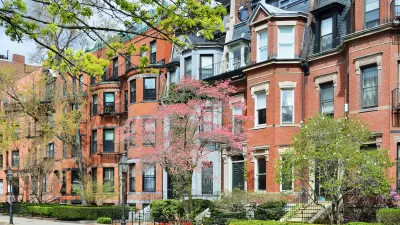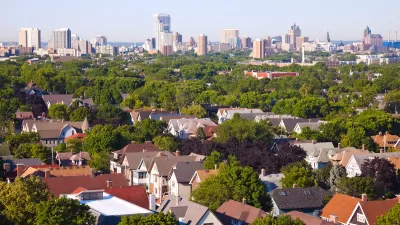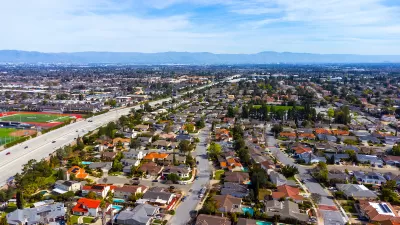An opinion piece calls out suburban communities for perpetuating structural inequality and housing discrimination. Recently converted social justice advocates should focus their zeal on zoning reform, according to the argument that follows.

Sara C. Bronin writes an opinion piece for the Courier Journal in Louisville connecting the calls for racial and social justice to land use reform as expressed by local zoning laws: "We must not forget about one of the most important perpetuators of fundamental inequalities in the country today: zoning."
"Every resident of an affluent, suburban town who marched in solidarity should be on the phone today with their elected leaders, trying to get zoning reforms on their town’s agenda," according to Bronin, to change the ongoing legacies of the exclusionary and discriminatory history of zoning.
It's no coincidence that Bronin's opinion piece is found in Louisville's local daily newspaper.
In 1916, the U.S. Supreme Court struck down this type of “racial zoning” as unconstitutional, in a case called Buchanan v. Warley. At issue was a Louisville zoning ordinance that was written “to prevent conflict and ill feeling between white and colored races,” and “to preserve the public peace.” The method of achieving these goals? The “use of separate blocks for residences, places of abode, and places of assembly by white and colored people respectively.”
Although Louisville's racial zoning didn't pass muster with the 14th Amendment, zoning practices still "perpetuate structural inequities and block access to opportunity," according to Bronin, and in 2020, the Supreme Court can't be relied on to overturn the ongoing discriminatory practices of zoning.
As documented by a recent Planetizen feature, Louisville is still struggling to correct massive disparities in public health outcomes for low-income neighborhoods and people of color.
FULL STORY: Opinion: In fight for justice, zoning laws that exclude low-income people must be changed

Trump Administration Could Effectively End Housing Voucher Program
Federal officials are eyeing major cuts to the Section 8 program that helps millions of low-income households pay rent.

Planetizen Federal Action Tracker
A weekly monitor of how Trump’s orders and actions are impacting planners and planning in America.

Ken Jennings Launches Transit Web Series
The Jeopardy champ wants you to ride public transit.

Washington Legislature Passes Rent Increase Cap
A bill that caps rent increases at 7 percent plus inflation is headed to the governor’s desk.

From Planning to Action: How LA County Is Rethinking Climate Resilience
Chief Sustainability Officer Rita Kampalath outlines the County’s shift from planning to implementation in its climate resilience efforts, emphasizing cross-departmental coordination, updated recovery strategies, and the need for flexible funding.

New Mexico Aging Department Commits to Helping Seniors Age ‘In Place’ and ‘Autonomously’ in New Draft Plan
As New Mexico’s population of seniors continues to grow, the state’s aging department is proposing expanded initiatives to help seniors maintain their autonomy while also supporting family caregivers.
Urban Design for Planners 1: Software Tools
This six-course series explores essential urban design concepts using open source software and equips planners with the tools they need to participate fully in the urban design process.
Planning for Universal Design
Learn the tools for implementing Universal Design in planning regulations.
Heyer Gruel & Associates PA
Ada County Highway District
Institute for Housing and Urban Development Studies (IHS)
City of Grandview
Harvard GSD Executive Education
Toledo-Lucas County Plan Commissions
Salt Lake City
NYU Wagner Graduate School of Public Service





























